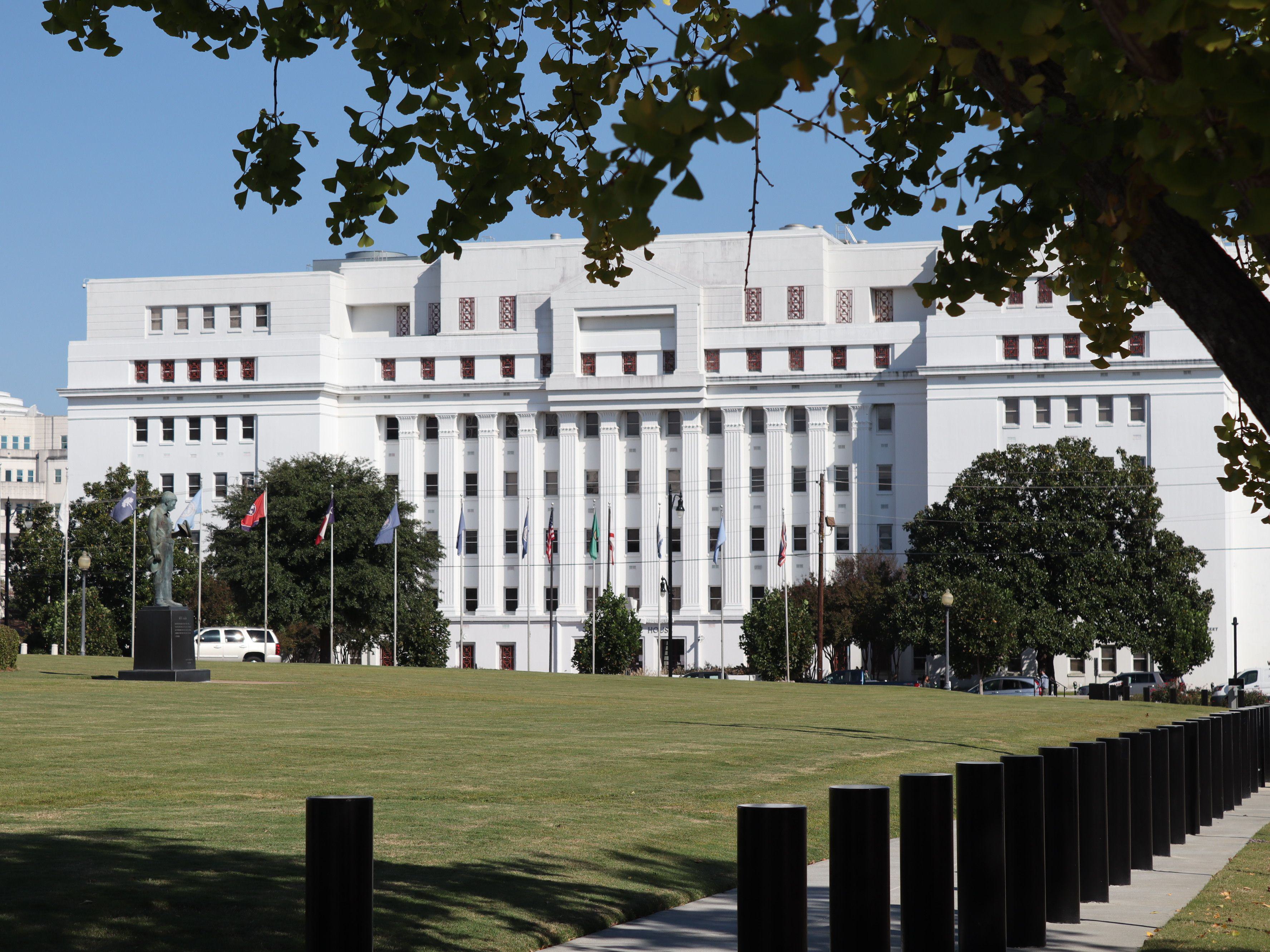The Alabama Senate Finance and Taxation Education committee voted to give two tax-cut bills a favorable report on Tuesday.
Senate Bills 18 and 19 are both sponsored by State Sen. Arthur Orr (R-Decatur) who chairs the committee.
“It is no secret that we have an awful lot of money in the education budget,” Orr told the members of the committee. “Any member if you have some innovative ideas about how to spend money come see me. Let's talk about them.
“Having a good bit of money is both a blessing and it can be a curse. You can overspend. We have to be very careful about overspending.
“Some older members can remember the days when we spent to the max and then regretted it when we had proration. There is a host of tax-cut type bills that have been referred to the committee.”
Orr said that he has decided “to take up the concept of tax cuts” with his two bills.
“I am not suggesting that these two bills are the end-all-be-all,” Orr said. “We can look at other type tax-cut bills. I think we should try to send some of this money back to the people of Alabama because that is where it is coming from.
“Our revenues are going to benefit because of higher inflation. If a loaf of bread costs $1.00 and we have 10% inflation, and I know inflation is not that high but for illustration purposes, the bread would then cost $1.10” resulting in more sales taxes collected. “Income presumably will follow as people get pay raises to pay for the higher prices. That is a lagging indicator, but it will still help the education budget."
Orr said he believes retirees on a fixed income are impacted most by inflation. The second most impacted, Orr said, are working families.
Orr explained that his bill SB18 would exempt the first $5000 taken out of a 401K from state taxes. That will cost the education trust fund budget $20 million. The second phase would exempt the next $5000, which would also cost the ETF another $20 million a year for a total impact of $40 million.
SB18 is cosponsored by Republican Sens. Tom Butler, Gerald Allen, Tim Melson, Andrew Jones, Jack Williams, Sam Givhan, Jabo Waggoner, Clay Scofield, Greg Reed, Tom Whatley, Will Barfoot, Clyde Chambliss, Chris Elliott and Steve Livingston. The bill would only need to pick up three more votes in order to pass the Senate.
According to the synopsis, “Currently, distributions from defined contribution deferred compensation plans are taxable as income. This bill would provide that up to $10,000 of those distributions is exempt from income tax for individuals who are 65 years of age or older. This exemption will be phased in over a two-year period.”
Orr said that he limited the bill to age 65, even though some people take retirement as early as 59, because he did not want to encourage people to retire.
“We want people to remain in the workforce,” Orr explained.
SB18 was amended in committee.
“The amendment, according to Mr. Fulford, is on whether IRAs are included,” Orr said.
Senate Minority Leader Bobby Singleton (D-Greensboro) made a motion that the committee adopt the amendment.
Sen. Jim McClendon (R-Springville) asked, “This amendment takes care of individual retirement accounts?”
“It does,” Orr replied.
The committee voted unanimously 10 to zero to adopt the amendment and give the bill as amended a favorable report.
SB19 raises the standard exemptions on state income taxes.
“The federal government took their standard exemption up to $25,000,” Orr said. “This more or less will bring us in line with them.
“Those that don’t itemize... would benefit from this, particularly if they have children."
According to the fiscal note: “Senate Bill 19 as introduced and as amended and reported by the Committee on Finance and Taxation Education would decrease individual income tax receipts to the Education Trust Fund by an estimated $17,230,000, beginning in fiscal year 2023 and each year thereafter, by increasing:
(1) the threshold for the maximum dependent exemption from $20,000 to $50,000;
(2) the adjusted gross income floor for the optional standard deduction for taxpayers that are married filing jointly, head of family, and single from $23,000 to $25,500 and from $10,500 to $12,750 for taxpayers that are married filing separately; and
(3) the standard deduction amount from $4,000 to $5,000 for taxpayers that are married filing jointly and from $2,000 to $2,500 for taxpayers that are married filing separate, head of family and single.”
SB19 also passed the committee on a unanimous 10 to zero vote.
If both of Orr’s tax cut proposals were to pass then once fully implemented, revenues to the ETF would drop by over $57 million per year. Alabama Gov. Kay Ivey has requested $8,285,149,933 for the fiscal year 2023 budget - $626,223,817 more than FY 2022. That $57 million reduction would amount to less than a .69% cut to the ETF. State ETF revenues have been consistently growing faster than the rate of inflation since 2012 – even though some revenues from use taxes have been transferred to the state general fund (SGF) during that time period.
SB18 and SB19 can be addressed by the full Senate once the special session is over and the legislature can resume the 2022 Alabama Regular Legislative Session.
Thursday will be day two of the first 2022 special session.
To connect with the author of this story, or to comment, email brandon.moseley@1819News.com.










